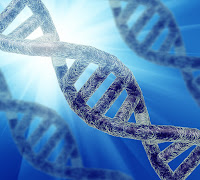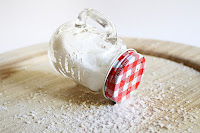Some time ago there was a good news that made many people with high blood pressure feel very surprised, that is, the high blood pressure vaccine will soon be available. Some people feel that after this vaccine is released, there will be no need to take medication after the high blood pressure vaccine is injected, and the body will no longer get those so-called side effects Is the effect of the hypertension vaccine exactly that? Let's learn more about it below.
1. Is high blood pressure vaccine a vaccine?
 The high blood pressure vaccine is different from the hepatitis vaccine, the flu vaccine, and the covid vaccine that we used to get because the common vaccines are given to healthy people before they get sick to prevent the occurrence of related diseases. The high blood pressure vaccine is not preventive, but rather a "therapeutic player" that can replace some of the hypertension medications, targeting the main targets that cause hypertension, and allowing the body to produce antibodies through the vaccine and maintain the effect of lowering blood pressure for a while.
The high blood pressure vaccine is different from the hepatitis vaccine, the flu vaccine, and the covid vaccine that we used to get because the common vaccines are given to healthy people before they get sick to prevent the occurrence of related diseases. The high blood pressure vaccine is not preventive, but rather a "therapeutic player" that can replace some of the hypertension medications, targeting the main targets that cause hypertension, and allowing the body to produce antibodies through the vaccine and maintain the effect of lowering blood pressure for a while.
2. High blood pressure vaccine, one shot can say goodbye to antihypertensive drugs?
This idea is still in the ideal stage for now.
First, the high blood pressure vaccine is not a one-shot, once-and-for-all solution.
The longest duration of antibodies found in the literature is the Ang II vaccine developed by Nakagami's team in Japan, which lasts for more than 6 months.
Second, high blood pressure vaccine do not cover all patients with hypertension.
The site of action of current hypertension vaccines lies in the renin-angiotensin-aldosterone system (RAAS), where the Ang II vaccine has made greater progress, and the small molecular weight of Ang II plays a key role by blocking the RAAS. However, the pathogenesis of hypertension is complex and diverse, and blocking only a single mechanism, the RAAS, does not address the diverse etiology of hypertension.
Depending on the pathogenesis, there is more than one type of drug therapy corresponding to different pathogenic mechanisms, and the common ones are.
- ① Diuretics, common drugs include furosemide, spironolactone, etc.
- ② β-blockers, the effect of these drugs on lowering blood pressure is weaker, and the representative drugs mainly include beta-lactam and bisoprolol.
- ③ Angiotensin receptor antagonists or converting enzyme inhibitors, common drugs include Enalapril, Irbesartan, and other drugs.
- ④ Calcium channel blockers, common drugs include amlodipine, nifedipine.
Many hypertensive patients taking antihypertensive drugs need a combination of drugs to achieve a good antihypertensive effect, and I am afraid that this single antihypertensive mechanism of high blood pressure vaccine can not meet the needs of patients with complex conditions.
Third, there are indications for high blood pressure vaccine
- A single-target high blood pressure vaccine may only be suitable for those patients with mild to moderate hypertension (systolic blood pressure: 140 mmHg to 179 mmHg, diastolic blood pressure: 90 mmHg to 109 mmHg).
- Because patients with severe hypertension have excessively high blood pressure and more complex pathogenesis, the benefit of vaccination against hypertension with a single target is limited.
- In addition, hypertensive patients with immunodeficiency or autoimmune diseases are not suitable for high blood pressure vaccine; patients who are allergic to high blood pressure vaccine should not be used.
In summary, people who want to get rid of hypertension and antihypertensive drugs with a single shot may forget that the ideal is very rich and the display is very skeletal. At this stage, it is still necessary to rely on antihypertensive drugs.
3. When can the high blood pressure vaccine be started?
The high blood pressure vaccine has been proposed since the 1950s, until 2008 when The Lancet reported an article about a Swiss drug company developing a high blood pressure vaccine, and then now, the hypertension vaccine and individualized treatment, immune tolerance, immune system impact, and other very problems are still to be verified one by one.
There is also news that it is expected that by August 2022 perhaps patients can use, even after the high blood pressure vaccine is available, it is not recommended to vaccinate blindly, should be based on the doctor's advice for reference.
4. To stabilize blood pressure, in addition to taking drugs regularly and quantitatively, you should also put your hope in some small things in your daily life, if the small things are not done well, even if you take more drugs may affect the effectiveness of the drugs.
- Control weight and eat lightly
Patients with hypertension should take the initiative to stay away from foods that may lead to fat because these foods generally have a common feature, that is, the fat and fat content is very high, a large amount of fat into the body is easy to accumulate in the body, not only will lead to fat, while some lipid substances into the blood vessels, will also affect the stability of blood pressure.
- Control sodium quit smoking and alcohol
I believe we should have heard that the daily salt intake of healthy adults should not exceed 6 grams, know that hypertensive patients are not considered healthy adults, so these people in the control of sodium salt should be reduced, it is recommended that the daily salt intake is maintained within 4 grams, because too much salt intake into the body is easy to stimulate the blood vessels, and often smoking and drinking will also lead to harmful substances into the body is not conducive to the health of blood vessels and blood pressure.
- Exercise properly and take regular blood pressure tests
Do not feel afraid to participate in sports after suffering from hypertension, in fact, for people with high blood pressure, a certain amount of time every day to participate in some moderate exercise, which will help stabilize blood pressure.
In summary, although the arrival of the high blood pressure vaccine can largely reduce people's suffering, for people suffering from hypertension, do not put all your hopes on the vaccination, the key is to regulate the usual behavior habits, regular and quantitative medication.
Conclusion: Are you friends in front of the screen looking forward to the release of the high blood pressure vaccine? What do you think about it? Welcome to leave comments below.
all photoes from pexels























